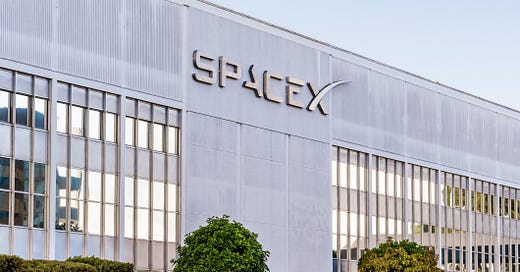In 2023, a group of six Republican senators, including J.D. Vance and Marco Rubio, sponsored legislation that would require Chinese and other foreign investors to disclose their stakes in U.S. aerospace companies. The bill’s primary sponsor, Rubio, and one of its cosponsors, Vance, have since left the Senate for the White House. But their concerns about Chinese investors gaining a foothold in the highest levels of the U.S. aerospace industry have since been confirmed.
A recent ProPublica report found that SpaceX, Elon Musk’s privately owned rocket company, discreetly allows Chinese investors to purchase its shares through offshore investment schemes. The investments are made through special-purpose vehicles used to conceal investors’ identities. The arrangement also makes it difficult to know how much investment SpaceX has received from Chinese investors.
The SPACE Act, first introduced by Rubio in 2021, would require foreign investors to notify regulators if they acquire a stake worth more than 2% in a U.S. aerospace company. “The [U.S. Securities and Exchange] Commission shall require any foreign person who, after acquiring directly or indirectly the beneficial ownership of any equity security… of more than 2 percent of the class, to file with the Commission,” reads the 2023 version of the bill, which was cosponsored by now-vice president Vance. Rubio now serves as Secretary of State.
Among the bill’s Republican cosponsors were Senators John Cornyn, Marsha Blackburn, Roger Wicker, and former Senator Mike Braun, now the governor of Indiana. The SPACE Act demonstrates the security concerns that lawmakers in Washington have long held regarding Chinese investments in U.S. aerospace firms. It also raises questions about whether any of its sponsors would stand by the bill now that Musk serves as President Trump’s most powerful advisor. The offices of Vance, Blackburn, Wicker, and Braun did not respond to requests for comment. The State Department declined to comment. “As a general practice, we do not comment on pending legislation,” a department spokesperson said.
SpaceX has received billions in federal contracts to launch U.S. spy satellites and the Pentagon’s celestial communications network, making the involvement of Chinese nationals in the company a national security concern.
In December, Iqbaljit Kahlon, a top SpaceX investor who has arranged for Chinese investors to buy into the company, testified that SpaceX deems investments from China “acceptable” if they are channeled through offshore vehicles. “The primary mechanism is that those investors would come through intermediate entities that they would create or others would create,” Kahlon testified in a Delaware court, according to ProPublica. He continued: “Typically they would set up [British Virgin Islands] structures or Cayman structures or Hong Kong structures and various other ones.”
Kahlon’s investment firm has played a middleman role for investors looking to acquire coveted shares of SpaceX, the most valuable private company in the world. In 2021, Kahlon was working with a Chinese firm seeking to invest in SpaceX. But, according to Kahlon, Musk quashed the $50 million deal after Chinese media outlets reported on it. In the same Delaware court, SpaceX chief financial officer Bret Johnsen testified that the arrangement would not be “helpful for our company as a government contractor,” adding that news of Chinese investment would “[arm] our competitors with something to use as a narrative against us.”
While that deal fell apart, resulting in the dispute now playing out in Delaware, Kahlon testified that he had previously arranged for other Chinese investors to buy into SpaceX. (SpaceX has continued to allow Kahlon’s firm, Tomales Bay Capital, to purchase its shares.)
SpaceX previously stifled an effort by Senate Republicans to compel NASA to vet its contractors for financial ties to China. In late 2019, Senator Cory Gardner, a Colorado Republican, introduced amendments to the NASA Authorization Act that would require NASA to review prospective contractors’ affiliations and financial relationships with the Chinese government. The amendments would also require the U.S. comptroller general to conduct a review of NASA contracts for “unacceptable transfers of intellectual property or technology” to entities owned by or affiliated with the Chinese government.
The measure was approved by the Senate Committee on Commerce, Science, and Transportation. However, Gardner, who lost his reelection bid in 2020, said lobbyists for SpaceX killed the provision.“We had heard through the grapevine that it was SpaceX, but we never heard from them directly,” Gardner told the Wall Street Journal in 2022.
This post has been updated to include a response from the State Department.





Between things like this and ending USAID, we are intentionally undermining ourselves to our adversaries.
Nice reporting folks! Should be on the front page of the MSM.
I my humble opinion, many of the super rich and absolutely every multinational widely held corporation have no allegiance whatsoever to their country of origin. They will seek harbor where they feel safe and operate anywhere they can in order to relentlessly increase profits. They are feral ravenous dogs that if unrestrained will consume all the world wealth and leave us billions begging at their feet.
CONSTITUENT MEANS DONOR